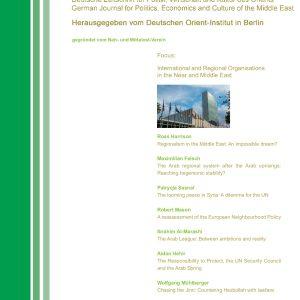Description
Although the Arab world does not lack regional institutions, it is known to be the least integrated region in the world. More recently, as an indirect consequence of the Arab uprisings, regional organisations like the Arab League and the Gulf Cooperation Council have shown unprecedented activism. This article sheds light on the evolving institutional architecture of the Arab Middle East by examining changes to the hegemonic condition of the Arab regional system in the post-2011 era. It argues that the new regional dynamics reflect a new balance of power in which Saudi Arabia appears as the region’s internal hegemon that utilises Arab institutions as instruments of power politics against its rival Iran.
Maximilian Felsch is Associate Professor and head of the Political Science Department at Haigazian University in Beirut, Lebanon. Awarded two doctoral fellowships by the Orient-Institut Beirut (OIB) and the Friedrich-Ebert Foundation (FES), he received his PhD in 2011. Felsch is an author of two books, various book chapters, and peer-reviewed journal articles on the Middle East and is a member of the International Studies Association (ISA) and the German Middle East Studies Association for Contemporary Research and Documentation (DAVO). His research is focused on the international relations of the Middle East and the role of religion in Middle Eastern politics. Felsch recently published the book Lebanon and the Arab Uprisings: In the Eye of the Hurricane (Routledge, 2016) which he co-edited with Martin Wählisch. The volume analyses the various impacts of the Arab Uprisings on Lebanon’s stability, economy, and foreign relations.




Reviews
There are no reviews yet.